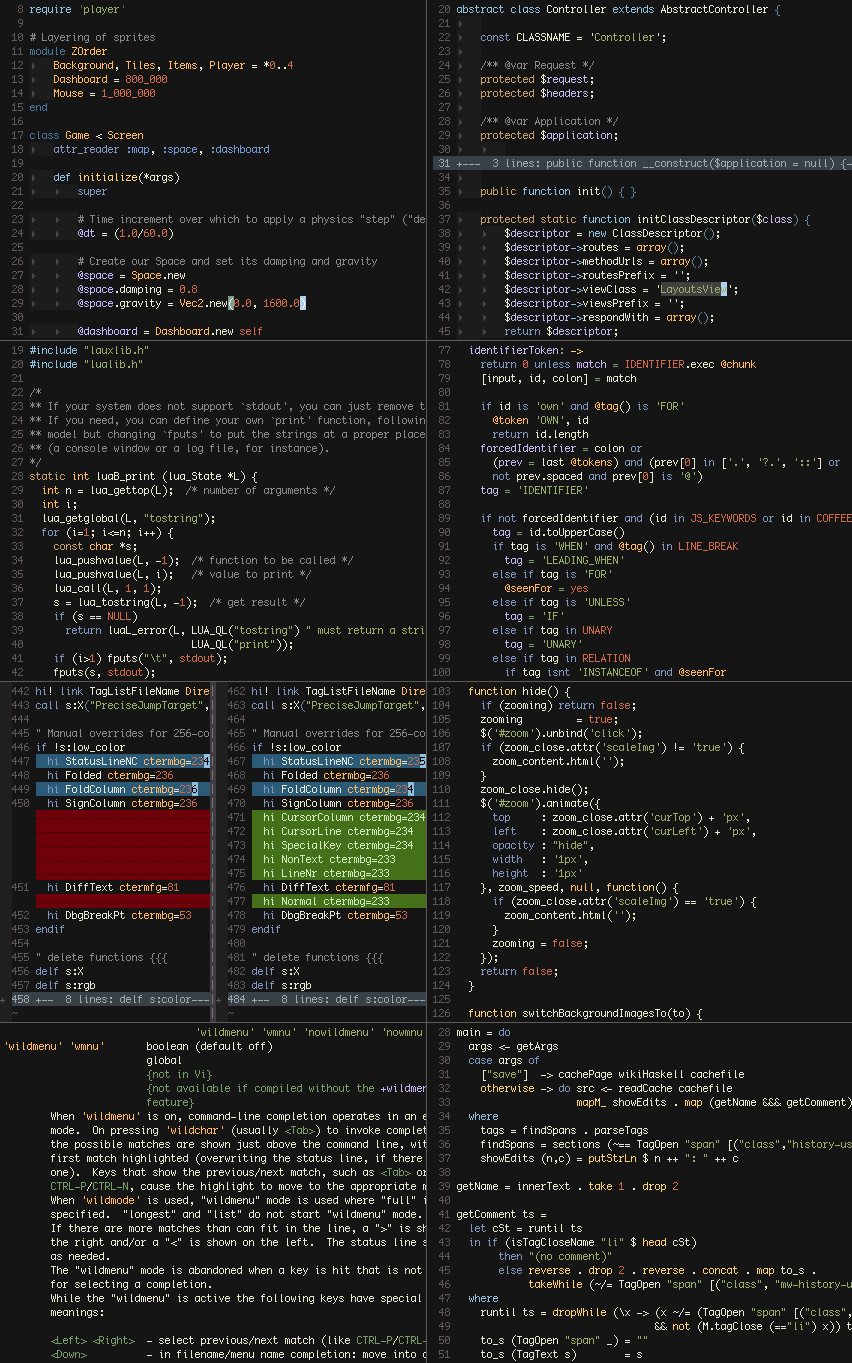A colorful, dark color scheme, inspired by ir_black and twilight.
Designed primarily for a graphical Vim, but includes support for 256, 88, 16,
and 8 color terminals. On a 16 or 8 color terminal, replace its colors with
those in ansi-term-colors.txt for best results.
This script is vimscript #2555 at Vim.org.
Scroll down for screenshots!
If you prefer slightly different colors from what Jellybeans defines,
you can set g:jellybeans_overrides in your .vimrc to a dictionary of
custom highlighting parameters:
let g:jellybeans_overrides = {
\ 'Todo': { 'guifg': '303030', 'guibg': 'f0f000',
\ 'ctermfg': 'Black', 'ctermbg': 'Yellow',
\ 'attr': 'bold' },
\}
This removes the need to edit Jellybeans directly, simplifying upgrades. In addition, RGB colors specified this way are run through the same color approximation algorithm that the core theme uses, so your colors work just as well in 256-color terminals.
If you can pick better colors than the approximator, specify them
in the 256ctermfg and 256ctermbg parameters to override
its choices.
Since the background on a dark terminal is usually black already, Jellybeans appropriates the black ANSI color as a dark grey and uses no color when it really wants black.
If you can’t or don’t want to change your terminal’s color mappings, add
let g:jellybeans_use_lowcolor_black = 0
to your .vimrc to render “black” text as Vim’s grey (ANSI white).
Users of Apple’s pre-10.7 Terminal.app can use the TerminalColours plugin (Leopard, Snow Leopard) to change the default colors.
